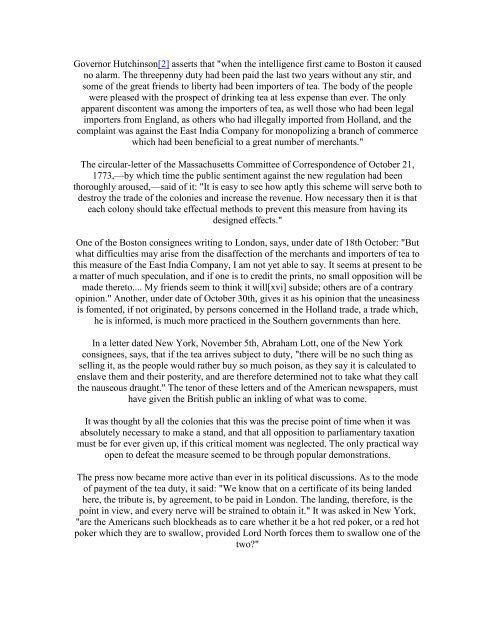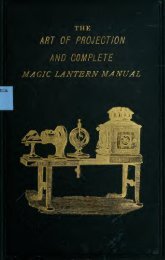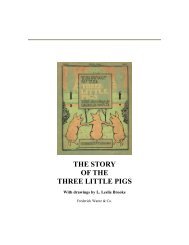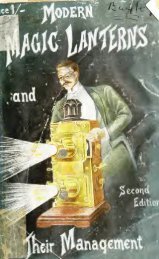TEA LEAVES: - Yesterday Image
TEA LEAVES: - Yesterday Image
TEA LEAVES: - Yesterday Image
You also want an ePaper? Increase the reach of your titles
YUMPU automatically turns print PDFs into web optimized ePapers that Google loves.
Governor Hutchinson[2] asserts that "when the intelligence first came to Boston it caused<br />
no alarm. The threepenny duty had been paid the last two years without any stir, and<br />
some of the great friends to liberty had been importers of tea. The body of the people<br />
were pleased with the prospect of drinking tea at less expense than ever. The only<br />
apparent discontent was among the importers of tea, as well those who had been legal<br />
importers from England, as others who had illegally imported from Holland, and the<br />
complaint was against the East India Company for monopolizing a branch of commerce<br />
which had been beneficial to a great number of merchants."<br />
The circular-letter of the Massachusetts Committee of Correspondence of October 21,<br />
1773,—by which time the public sentiment against the new regulation had been<br />
thoroughly aroused,—said of it: "It is easy to see how aptly this scheme will serve both to<br />
destroy the trade of the colonies and increase the revenue. How necessary then it is that<br />
each colony should take effectual methods to prevent this measure from having its<br />
designed effects."<br />
One of the Boston consignees writing to London, says, under date of 18th October: "But<br />
what difficulties may arise from the disaffection of the merchants and importers of tea to<br />
this measure of the East India Company, I am not yet able to say. It seems at present to be<br />
a matter of much speculation, and if one is to credit the prints, no small opposition will be<br />
made thereto.... My friends seem to think it will[xvi] subside; others are of a contrary<br />
opinion." Another, under date of October 30th, gives it as his opinion that the uneasiness<br />
is fomented, if not originated, by persons concerned in the Holland trade, a trade which,<br />
he is informed, is much more practiced in the Southern governments than here.<br />
In a letter dated New York, November 5th, Abraham Lott, one of the New York<br />
consignees, says, that if the tea arrives subject to duty, "there will be no such thing as<br />
selling it, as the people would rather buy so much poison, as they say it is calculated to<br />
enslave them and their posterity, and are therefore determined not to take what they call<br />
the nauseous draught." The tenor of these letters and of the American newspapers, must<br />
have given the British public an inkling of what was to come.<br />
It was thought by all the colonies that this was the precise point of time when it was<br />
absolutely necessary to make a stand, and that all opposition to parliamentary taxation<br />
must be for ever given up, if this critical moment was neglected. The only practical way<br />
open to defeat the measure seemed to be through popular demonstrations.<br />
The press now became more active than ever in its political discussions. As to the mode<br />
of payment of the tea duty, it said: "We know that on a certificate of its being landed<br />
here, the tribute is, by agreement, to be paid in London. The landing, therefore, is the<br />
point in view, and every nerve will be strained to obtain it." It was asked in New York,<br />
"are the Americans such blockheads as to care whether it be a hot red poker, or a red hot<br />
poker which they are to swallow, provided Lord North forces them to swallow one of the<br />
two"





